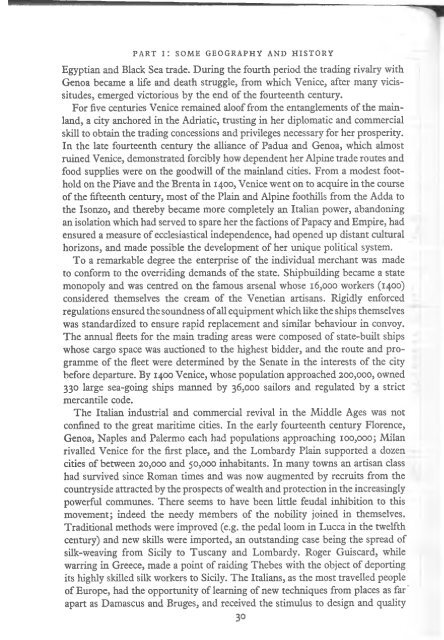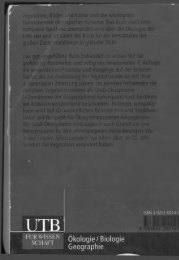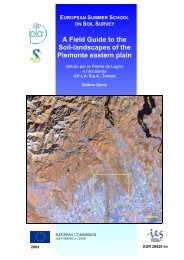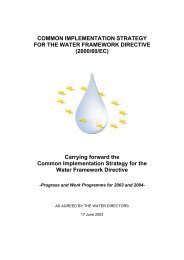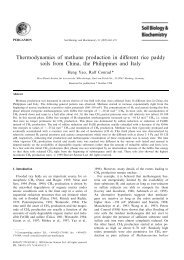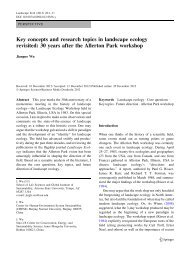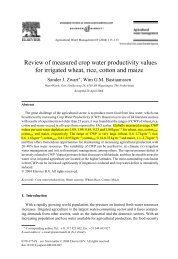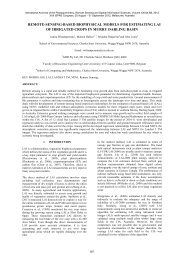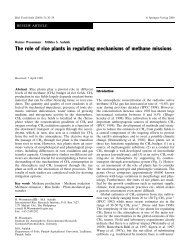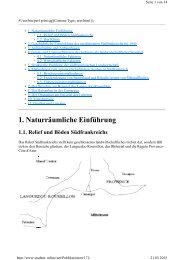Walker - 1967 - A geography of Italy
Walker - 1967 - A geography of Italy
Walker - 1967 - A geography of Italy
Create successful ePaper yourself
Turn your PDF publications into a flip-book with our unique Google optimized e-Paper software.
PART i: SOME GEOGRAPHY AND HISTORY<br />
Egyptian and Black Sea trade. Dtiring the fourth period the trading rivalry with<br />
Genoa became a life and death struggle, from which Venice, after many vicissitudes,<br />
emerged victorious by the end <strong>of</strong> the fourteenth century.<br />
For five centuries Venice remained alo<strong>of</strong> from the entanglements o f the mainland,<br />
a city anchored in the Adriatic, trusting in her diplomatic and commercial<br />
skill to obtain the trading concessions and privileges necessary for her prosperity.<br />
In the late fourteenth century the alliance o f Padua and Genoa, which almost<br />
ruined Venice, demonstrated forcibly how dependent her Alpine trade routes and<br />
food supphes were on the goodwill o f the mainland cities. From a modest foothold<br />
on the Piave and the Brenta in 1400, Venice went on to acquire in the course<br />
o f the fifteenth century, most o f the Plain and Alpine foothills from the Adda to<br />
the Isonzo, and thereby became more completely an Italian power, abandoning<br />
an isolation which had served to spare her the factions <strong>of</strong> Papacy and Empire, had<br />
ensured a measure o f ecclesiastical independence, had opened up distant cultural<br />
horizons, and made possible the development o f her unique pohtical system.<br />
T o a remarkable degree the enterprise o f the individual merchant was made<br />
to conform to the overriding demands o f the state. Shipbuilding became a state<br />
monopoly and was centred on the famous arsenal whose 16,000 workers (1400)<br />
considered themselves the cream o f the Venetian artisans. Rigidly enforced<br />
regulations ensured the soundness o f all equipment which like the ships themselves<br />
was standardized to ensure rapid replacement and similar behaviour in convoy.<br />
The aimual fleets for the main trading areas were composed o f state-built ships<br />
whose cargo space was auctioned to the highest bidder, and the route and programme<br />
o f the fleet were determined by the Senate in the interests o f the city<br />
before departure. By 1400 Venice, whose population approached 200,000, owned<br />
330 large sea-going ships manned by 36,000 sailors and regulated by a strict<br />
mercantile code.<br />
The Italian industrial and commercial revival in the Middle Ages was not<br />
confined to the great maritime cities. In the early foiurteenth century Florence,<br />
Genoa, Naples and Palermo each had populations approaching 100,000; Milan<br />
rivalled Venice for the first place, and the Lombardy Plain supported a dozen<br />
cities o f between 20,000 and 50,000 inhabitants. In many towns an artisan class<br />
had survived since Roman times and was now augmented by recruits from the<br />
countryside attracted by the prospects <strong>of</strong> wealth and protection in the increasingly<br />
powerful communes. There seems to have been htde feudal inhibition to this<br />
movement; indeed the needy members o f the nobihty joined in themselves.<br />
Traditional methods were improved (e.g. the pedal loom in Lucca in the twelfth<br />
century) and new skills were imported, an outstanding case being the spread <strong>of</strong><br />
silk-weaving from Sicily to Tuscany and Lombardy. Roger Guiscard, while<br />
warring in Greece, made a point <strong>of</strong> raiding Thebes with the object o f deporting<br />
its highly skilled silk workers to Sicily. The Italians, as the most travelled people<br />
o f Europe, had the opportunity o f learning o f new techniques from places as far'<br />
apart as Damascus and Bruges, and received the stimulus to design and quality<br />
30


